
Medicinal Health Benefits of Turmeric, Curcumin and Turmeric Tea Based on Science

Turmeric is more than just a vibrant yellow spice used in cooking—it’s a natural powerhouse packed with antioxidant, anti-inflammatory, antimicrobial, and anti-aging properties. Known for its earthy aroma and distinct flavor, turmeric has been used for centuries in both culinary and medicinal traditions. Its main active compound, curcumin, is what gives turmeric its impressive range of health benefits.
Studies have shown that curcumin can reduce inflammation, support heart health, detoxify the body, enhance digestive function, and may even assist in weight management. It also offers benefits when applied topically to the skin, where its anti-inflammatory and antioxidant properties help improve various skin conditions.
Let’s dive deeper into what science says about turmeric and curcumin, and learn how you can integrate this golden spice into your daily routine—whether through cooking, supplements, or natural remedies like turmeric tea.
Turmeric: A Medicinal "Golden Spice"
Often referred to as the “Golden Spice,” turmeric belongs to the Curcuma longa species and is closely related to ginger, another healing root.
Research has uncovered over 100 bioactive components in turmeric. The most notable are curcuminoids, especially curcumin, which is responsible for the majority of turmeric’s therapeutic properties. In addition to curcumin, turmeric also provides essential nutrients like potassium, iron, thiamine, B-group vitamins, and omega-3 fatty acids.
Historical and Scientific Backing
Turmeric has been a cornerstone of Ayurvedic and Traditional Chinese Medicine for millennia. Modern science now supports many of these traditional uses. A 2017 report highlighted curcumin’s antioxidant and anti-inflammatory effects, showing promise in the prevention and treatment of various chronic diseases.
However, it’s important to note that turmeric only contains about 3% curcumin by weight. To gain therapeutic benefits, many experts recommend curcumin supplements that are standardized to a higher concentration of curcuminoids.
Improving Absorption with Black Pepper
Curcumin is poorly absorbed on its own. That’s why many supplements include piperine, a compound in black pepper that can increase curcumin absorption by up to 2,000%. This synergy dramatically enhances the effectiveness of curcumin supplements and makes dietary use more impactful.
You can also increase turmeric’s potency by using it in cooking methods that boost its bioavailability—such as heating it in oil, or combining it with pepper and healthy fats.
Curcumin’s Anti-Inflammatory and Pain-Relief Benefits
Chronic inflammation is a root cause of many diseases, including heart disease, Alzheimer’s, diabetes, and certain cancers. Curcumin’s ability to block inflammatory pathways makes it a promising natural remedy.
-
A major review of curcumin studies from 1966–2002 confirmed its anti-inflammatory properties.
-
Curcumin works by inhibiting molecules like NF-kB, which play a key role in inflammation.
-
Research shows that doses up to 2,500 mg per day are generally well tolerated and effective.
In fact, curcumin may work as effectively as NSAIDs like ibuprofen and aspirin, but without the harmful side effects commonly associated with long-term use.
Pain Management with Curcumin
Curcumin’s anti-inflammatory power also provides natural pain relief for both acute and chronic pain conditions:
-
Helps reduce post-operative pain.
-
Assists in managing chronic conditions like diabetic neuropathy.
-
Provides natural pain relief for people with arthritis and joint pain.
Turmeric for Arthritis and Joint Pain
People suffering from osteoarthritis or rheumatoid arthritis may benefit greatly from turmeric supplements. Multiple clinical trials found that curcumin can be as effective as standard medications for arthritis, such as diclofenac sodium, without the gastrointestinal side effects.
-
Most studies recommend doses around 1,000 mg of curcumin per day.
-
Curcumin may help improve joint function, reduce stiffness, and lower inflammation.
For arthritis sufferers, turmeric is a valuable addition to a holistic approach, including anti-inflammatory diets and lifestyle changes.
Curcumin Supports Heart Health
Curcumin supports cardiovascular wellness in several ways:
-
Prevents blood clot formation by affecting platelet function.
-
Improves endothelial function, which is critical for maintaining artery health.
-
Lowers cholesterol by reducing LDL (“bad”) cholesterol levels.
-
Helps regulate blood pressure by suppressing inflammation-related proteins.
A 12-week study showed curcumin improved vascular health in participants at risk of heart disease. It’s a powerful natural ally for anyone looking to reduce their risk of cardiovascular issues.
Brain Health and Cognitive Support
Curcumin offers neuroprotective effects, making it a promising supplement for brain and mental health:
-
Helps reduce oxidative stress and inflammation in the brain.
-
May delay or reduce symptoms of Alzheimer’s disease.
-
Supports dopamine and serotonin production, improving mood and relieving depression.
A 6-trial meta-analysis found curcumin helped alleviate both depression and anxiety, with noticeable improvements seen within 4 to 8 weeks of consistent use.
Turmeric for Digestive Health
Turmeric enhances digestion and relieves common gastrointestinal issues:
-
Aids in managing IBS, acid reflux, ulcers, and Crohn’s disease.
-
Reduces intestinal inflammation and boosts gut health.
-
Promotes better bile production, essential for fat digestion.
Most people tolerate turmeric well, although high doses may cause mild stomach upset in sensitive individuals.
Managing Diabetes with Curcumin
Turmeric’s curcuminoids can help manage type 2 diabetes by:
-
Lowering blood sugar levels.
-
Reducing LDL cholesterol and preventing fatty liver.
-
Protecting against nerve damage and diabetic complications.
Even small doses (as low as 45 mg/day) have shown significant effects on heart health in diabetics.
Liver Detoxification and Support
Turmeric benefits liver health by:
-
Enhancing the body’s production of glutathione, a key antioxidant.
-
Helping protect the liver from toxins, alcohol damage, and drug side effects.
-
Reducing inflammation in liver tissue.
It’s a natural detoxifier that helps your liver perform its essential role more efficiently.
Anti-Cancer Potential of Curcumin
Research has explored curcumin’s use in cancer prevention and support therapy:
-
Inhibits the growth and spread of tumor cells in lab studies.
-
May be effective against breast, colon, and prostate cancers.
-
Enhances the effectiveness of some chemotherapy drugs.
While more human trials are needed, curcumin shows promise as a complementary therapy alongside traditional cancer treatments.
Turmeric for Skin Health
Turmeric benefits your skin both internally and topically:
-
Reduces inflammation, helping with acne, eczema, and psoriasis.
-
Slows down the appearance of fine lines, wrinkles, and hyperpigmentation.
-
Speeds up wound healing and reduces scarring.
Popular Uses:
-
Face masks for glowing skin.
-
Turmeric creams for treating acne or psoriasis.
-
Turmeric paste for healing minor cuts and wounds.
Curcumin and Weight Loss
Curcumin may support healthy weight loss by:
-
Reducing inflammation related to obesity.
-
Enhancing fat metabolism.
-
Helping regulate blood sugar and prevent insulin resistance.
In one study, participants saw a nearly 5% reduction in body weight after adding curcumin to their weight loss plan. However, it’s not a miracle solution—diet and lifestyle must be addressed in tandem.
Easy Turmeric Tea Recipe (Anti-Inflammatory Drink)
Making turmeric tea is a simple, delicious way to incorporate turmeric into your daily wellness routine.
Ingredients:
-
1–2 tsp freshly grated turmeric root (or ½ tsp turmeric powder)
-
¼ tsp black pepper
-
Boiling water
-
Optional: raw honey, lemon juice, or a slice of fresh ginger
Instructions:
-
Add turmeric (and ginger, if using) to a cup.
-
Pour over boiling water and let steep for 5–10 minutes.
-
Stir in black pepper.
-
Let cool slightly, then add lemon and honey to taste.
Enjoy 1–2 cups per day to support inflammation reduction, immune health, and digestion.
You can also try Turmeric Golden Milk, a traditional Ayurvedic drink made with turmeric, milk, and warming spices—a soothing option, especially before bed.
Final Thoughts
Turmeric is more than just a culinary spice—it’s a potent natural remedy with dozens of scientifically backed benefits. Whether taken as a supplement, brewed into tea, or added to food, turmeric and curcumin can support nearly every aspect of your health: from reducing inflammation and easing pain to protecting your brain, heart, skin, and more.
For best results:
-
Choose high-quality curcumin supplements with piperine.
-
Use turmeric in your cooking with healthy fats and pepper.
-
Be consistent—health benefits build up over time.
As with any supplement, consult your healthcare provider before starting a new regimen, especially if you’re taking medications or managing a chronic condition.
News in the same category


The best way to lower blood pressure fast!

9 Habits You Need To Adopt Today To Stop Alzheimer’s or Dementia Before It Starts

Get Rid of Throat Mucus Faster With These Highly Effective Natural Remedies

10 Symptoms of Kidney Disease

EAR PAIN EXPLAINED Causes, Relief & When to See a Doctor

Men Over 60: Chew This for 60 Seconds to Boost Energy & Confidence

How to Lose Weight with Cucumber! Simple & Quick Morning Recipe

5 Deficiencies Almost Everyone Has (But Doesn’t Know About)
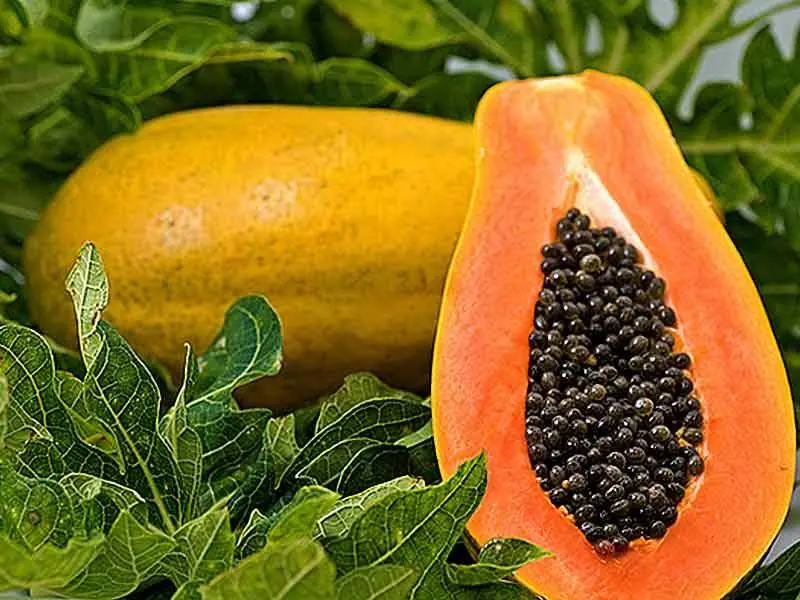
Scientifically Proven Health Benefits of Papaya (Fruit) and Uses for the Seeds
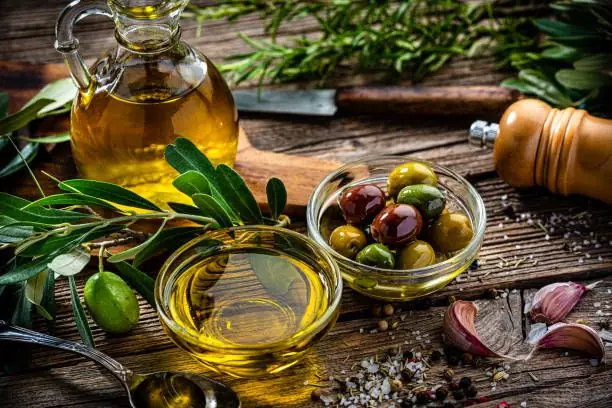
Scientifically Proven Health Benefits of Extra Virgin Olive Oil

Sharp Pain in Ear: Causes, Treatments, and When to See a Doctor

15 Nighttime Signs of Diabetes You Shouldn’t Ignore

Side effect of stopping omeprazole as NHS issues warning over use

Proven Health Benefits of Banana and Banana Peel Based on Science

Worrying health reality of what it means if you leave skids in the toilet

Blood Clot in Leg: Signs and Symptoms You Shouldn’t Ignore (Pictures Included)

4 diabetes mistakes you MUST avoid + 3 Secrets to naturally regenerate your pancreas!

#1 best way to reverse & slow dementia
News Post
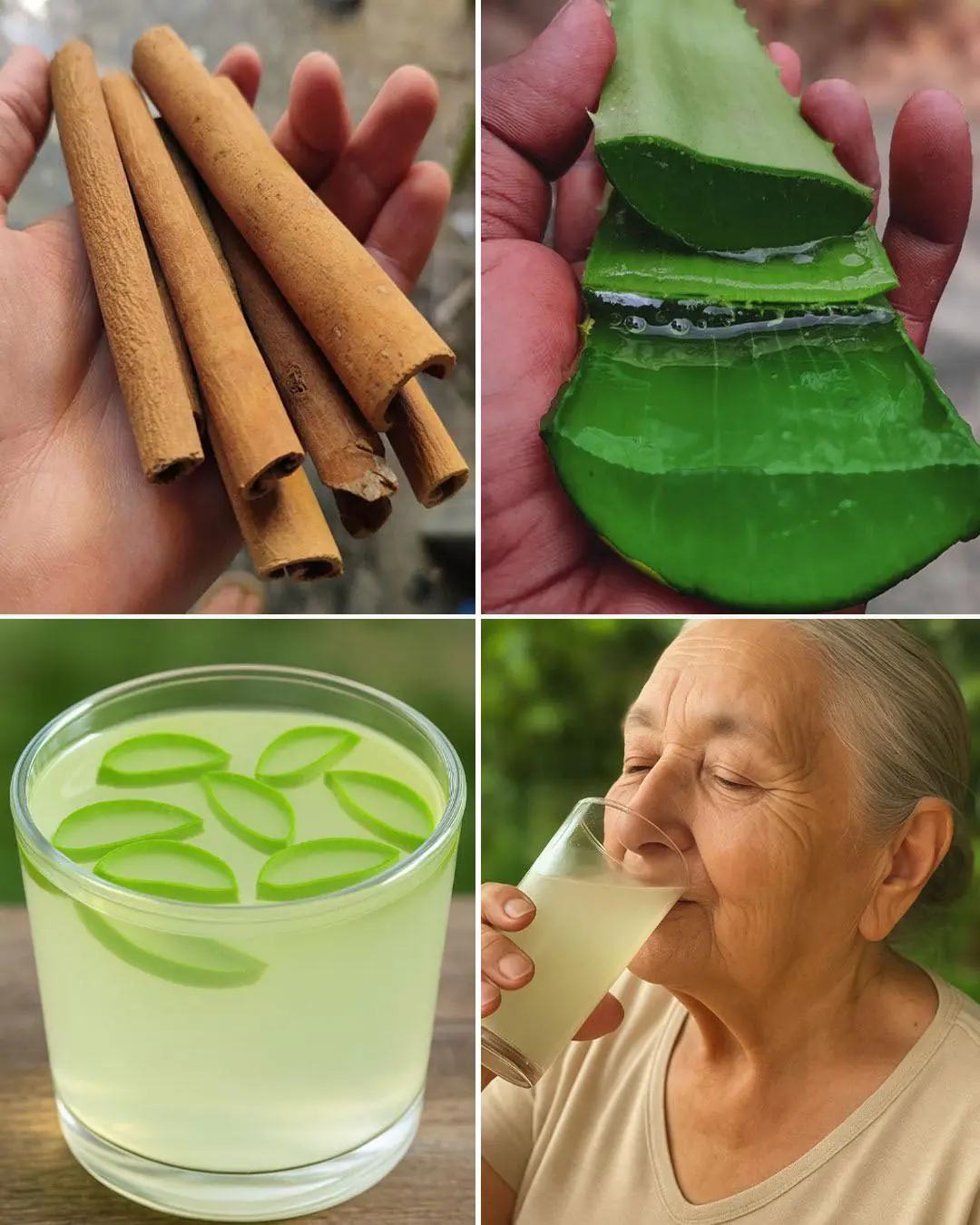
Aloe Vera and Cinnamon Remedy: Natural Benefits for Eye Health, Immunity, and Healing

12 Powerful Benefits of Moringa Seeds

Goldenberries (Physalis peruviana): A Nutrient-Packed Powerhouse for Health and Vision
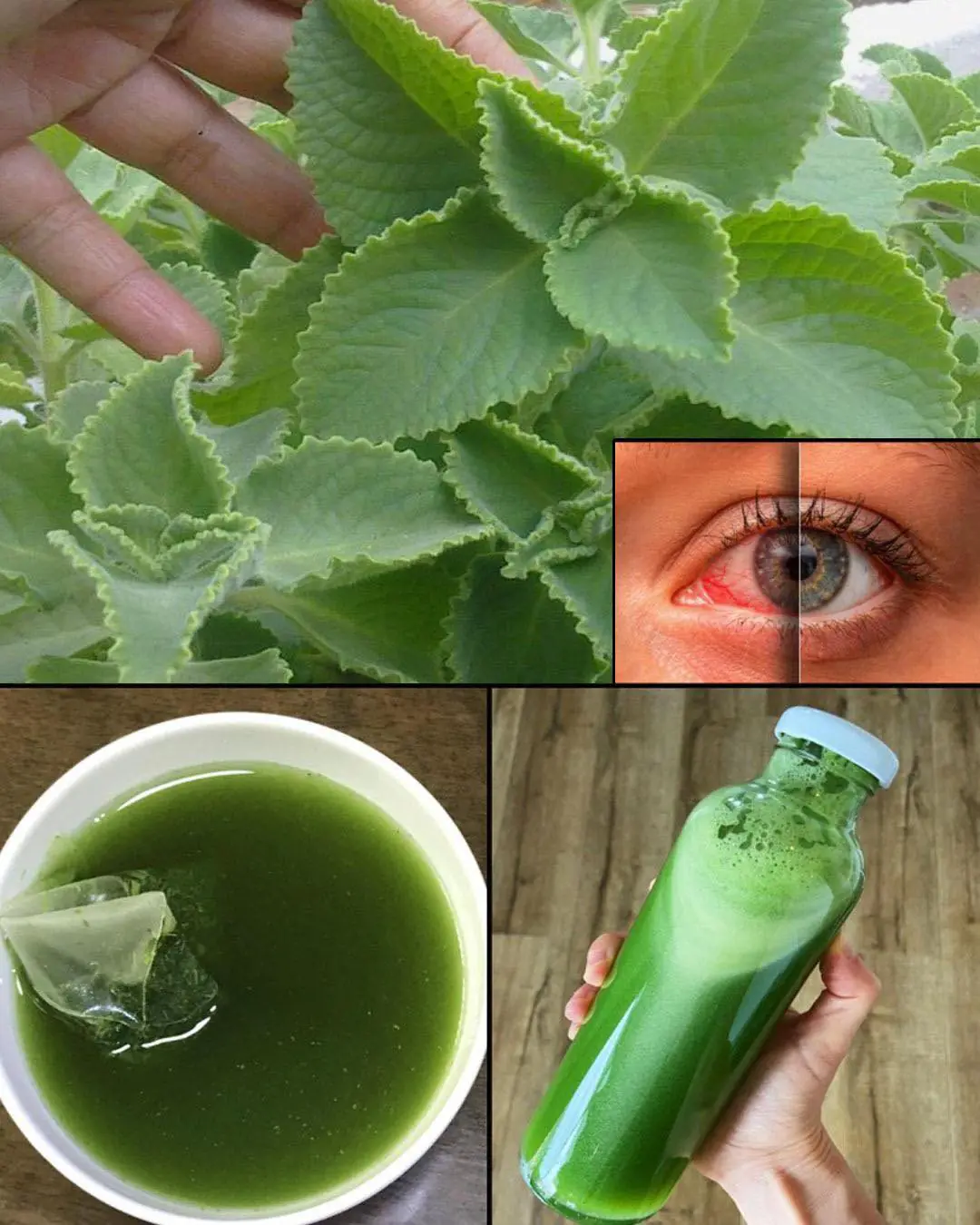
Oregano: The Golden Herb for Eye Health

Some of the Benefits of Castor Leaves and the Seed

10 Benefits and uses of purslane

Chanca Piedra (Stonebreaker): Benefits and Uses

Do you need to unplug the rice cooker after the rice is cooked: The surprising answer November 27, 2024

7 Benefits Of Papaya Seeds & How To Consume Them Correctly

Bougainvillea likes to 'eat' this the most, bury it at the base once and the flowers will bloom all over the branches

The elders say: "If you put these 3 things on top of the refrigerator, no matter how much wealth you have, it will all be gone." What are these 3 things?

Can rice left in a rice cooker overnight be eaten? Many people are surprised to know the answer.

After boiling the chicken, do not take it out immediately onto a plate. Do one more thing to make sure the chicken is crispy, the meat is firm, and the skin does not fall apart when cut.

Cut this fruit into small pieces and put it in the pot to boil the duck: The bad smell is gone, the meat is fragrant, soft and flavorful.

Warts on Hands: Causes and Effective Natural Treatments
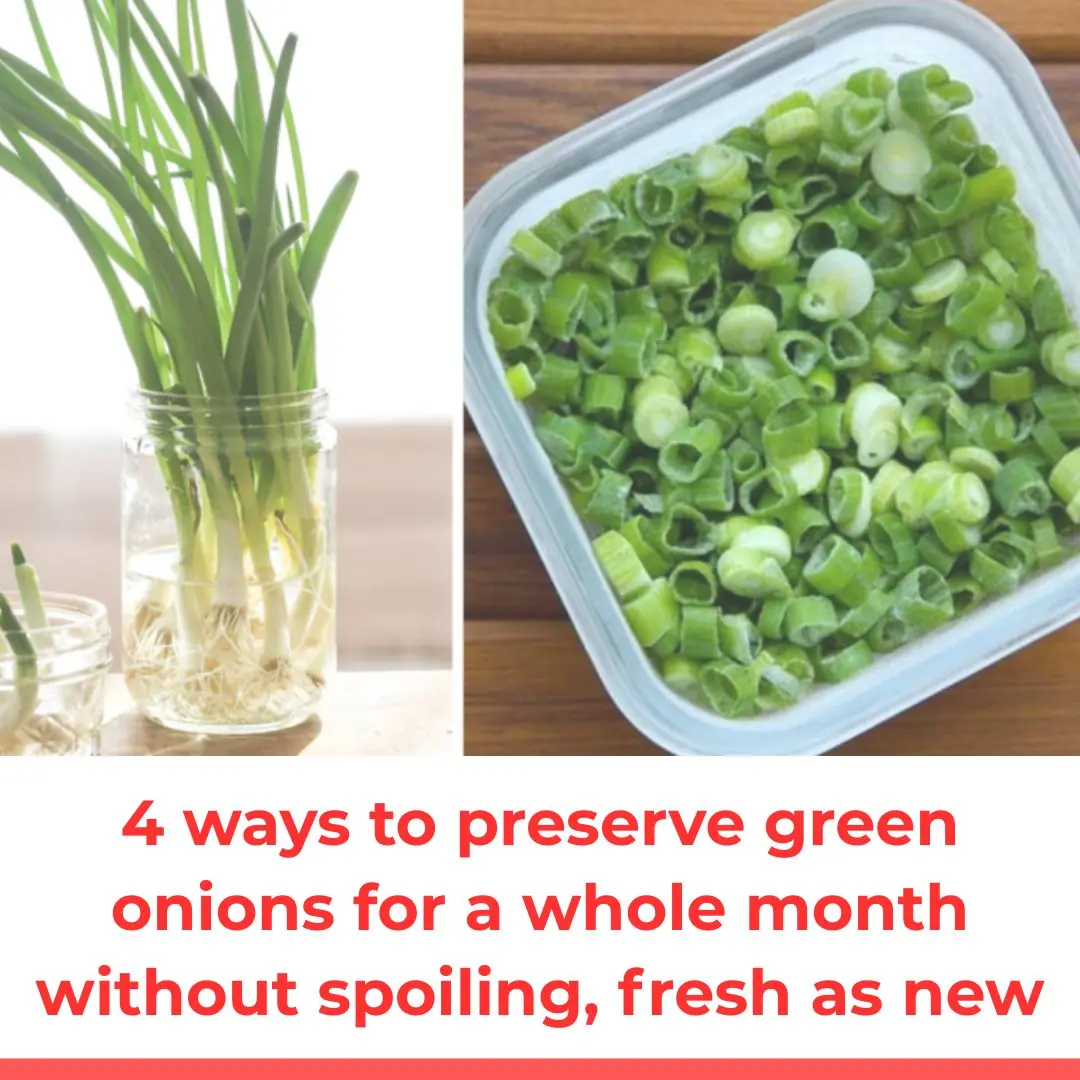
4 ways to preserve green onions for a whole month without spoiling, fresh as new

The best way to lower blood pressure fast!

9 Habits You Need To Adopt Today To Stop Alzheimer’s or Dementia Before It Starts
